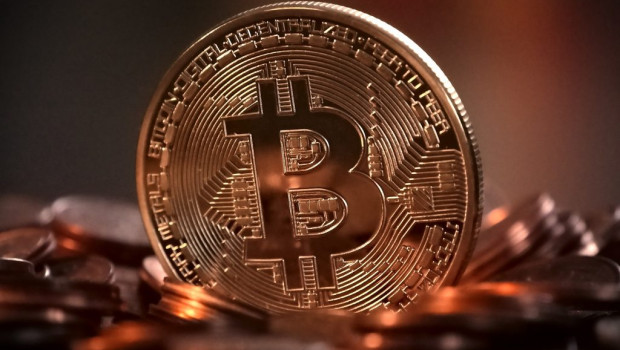Uncertainty for Bitcoin and cryptos due to macro data, Silvergate and the Fed

The cryptocurrency market remains in no man's land and shows no signs of improving. Bitcoin (BTC) is trading virtually flat at $22,400, while Ethereum (ETH) has dropped 0.4%, at $1,560.
There are many experts who highlight that Bitcoin is at a stalemate, but seemingly determined to submit to bearish pressure. "From a technical point of view, we are still within the $21,000-$25,000 range that we have been holding for several weeks now. Moreover, the importance of the $25,000 zone is paramount and we would not open long positions until that zone is surpassed," explained Javier Molina, analyst at eToro, who stressed that losing $21,000 would mean losing the recovery trend that has been observed since the beginning of the year.
The truth is that cryptos´ prices were hit hard by numerous negative headlines in the last month and by macroeconomic data that are not at all flattering for the U.S. economy.
On the one hand, the collapse of the cryptobank Silvergate erased market optimism in one fell swoop. The delay in the publication of its annual results, as well as the investigation by the Department of Justice into its relationship and role in the bankruptcy of FTX, and its status as a close partner of Binance, have worried investors.
All in all, there are always those who see the glass as half full. "It doesn't look like the Silvergate issue is leading to broad contagion. And we may have seen most of the drop associated with that news already," stated Matt Weller, global head of research at Forex.com, in an interview with 'CoinDesk TV' on Friday. Despite his cautious optimism, the expert acknowledged that he would not be surprised to see Bitcoin "retrace back down to $20,000, maybe even $18,000, to sort of retest those lows. But…it does look like the depths of the winter are behind us."
On the macro scene, it remains to be seen how the modest growth target released by China after its reopening affects prices. The data coming out of Pelin has led many experts to believe that massive stimulus is not going to be a regular feature this year in the region.
"The 5% growth target raises concerns about the amount of stimulus that the Chinese will put on the table, and the possible continuation of the government crackdown. The Chinese officials said that they don’t want a disorderly growth in real estate – which is a major ingredient for the Chinese growth. Plus, the local governments could borrow and spend less, even though the Chinese as a whole increased their fiscal deficit projection," noted Ipek Ozkardeskaya, senior analyst at Swissquote Bank.
This, Ozkardeskaya stressed, means that China is "on its way for more centralization of the power around Xi Jinping and less freedom for local entities. Combined with Xi’s fight against euphoric growth and the West’s limitation on investment and technology exports to China, we shall see investors reluctant to return to Chinese equities, " he explained. This could significantly affect cryptos, as there was some hope that the Asian market would push up prices.
On the other hand, the appearance of Jerome Powell, chairman of the Federal Reserve (Fed), before the Senate tomorrow, on Tuesday, will also be a focus of attention for the market. Experts highlight that he will reiterate that the Fed is not yet finished with its fight against inflation, that the labor market remains particularly strong and that a soft landing is possible, although they also stress that the central bank "will not hesitate to sacrifice growth to bring inflation down as quickly as possible."
"Looking at the latest set of data, the U-turn of easing inflation and last month’s blowout jobs figures, we don’t expect to hear anything less than hawkish from Mr. Powell. But it’s always possible that a word like ‘disinflation’ slips out of his mouth, and that we get a boost on risk," added Ozkardeskaya.
Also, the February employment data due on Friday could end up tipping the balance in the Fed's next interest rate decision. The U.S. economy is expected to have added around 200,000 jobs, with the possibility of a negative surprise after last month's reading of more than half a million.
This reading will be especially important after the disparity of views seen within the central bank, with members such as Kashkari, Bostic, Bullard or Waller showing in some cases opposing positions. At the moment, CME's FedWatch tool gives a 27.7% probability of a 50 basis point hike.
In the rest of the market, there have been generalized falls in the main altcoins. Highlights include declines of almost 3% in Ripple (XRP) and 2% in Binance coin (BNB) and Cardano (ADA).